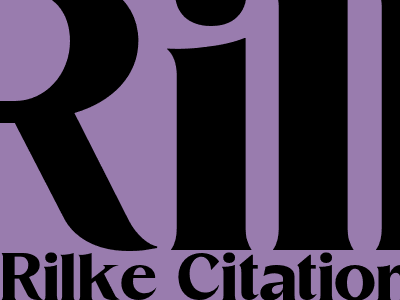Rilke Citations: Unlocking the Significance of Literary Quotations
An Exploration of Rilke's Profound Impact on Literature
Introduction
The works of Rainer Maria Rilke, the renowned Austrian poet, have left an indelible mark on the literary landscape. His profound insights and evocative language have resonated with readers for generations. Rilke's citations, in particular, have become iconic, often quoted and referenced in various contexts to convey deep emotions and existential truths.
In this comprehensive guide, we delve into the significance of Rilke citations, examining their literary impact and exploring their relevance to our lives today. We will uncover the hidden meanings behind some of his most celebrated quotes and provide practical tips on how to effectively use Rilke's words in your own writing and communications.
The Significance of Rilke Citations
Literary Influence
Rilke's citations have become embedded within the fabric of Western literature. His unique ability to capture the essence of human emotion and the complexities of the human condition has made his words highly influential. Writers from T.S. Eliot to Sylvia Plath have drawn inspiration from Rilke's works, incorporating his insights into their own creations.
Cultural Impact
Beyond the literary realm, Rilke's citations have permeated popular culture. His words have been featured in films, television shows, and music, reaching a broad audience and resonating with individuals from all walks of life. The universality of his themes ensures that his citations continue to find relevance in our modern world.
Exploring Famous Rilke Citations
"Love is not possession, but a way of seeing."
This quote emphasizes the transformative power of love. It suggests that true love is not about controlling or owning another person, but rather about recognizing and appreciating their unique qualities.
"The only journey is the one within."
Rilke invites us to embark on a journey of self-discovery. He asserts that the most important experiences are not external adventures, but rather the inward exploration of our own thoughts, emotions, and motivations.
"Everything is sacred, even what is broken."
This quote reminds us of the inherent value of all things, even those that may seem flawed or imperfect. It encourages us to embrace the beauty in imperfection and find meaning in our own unique experiences.
Using Rilke Citations Effectively
In Writing
When incorporating Rilke

Comments